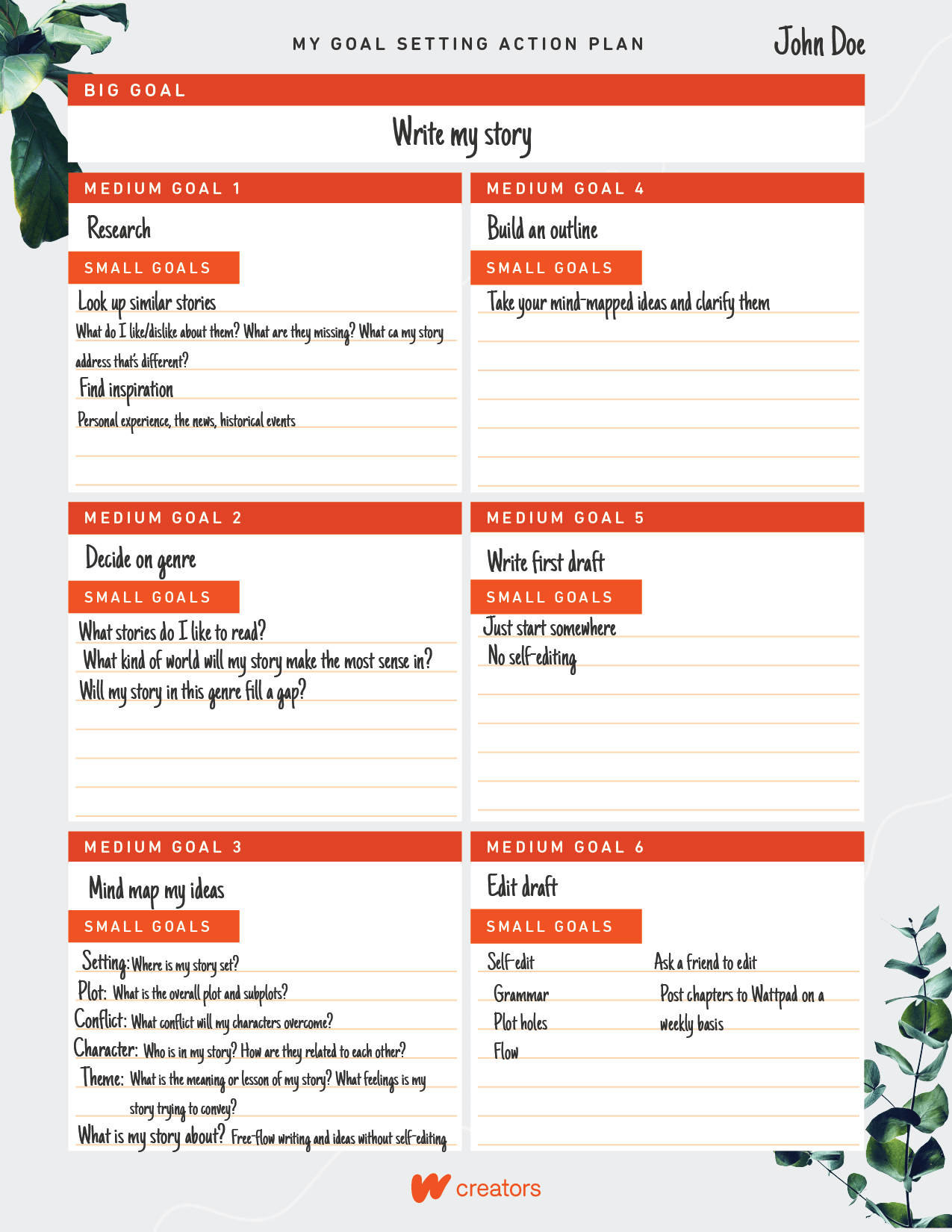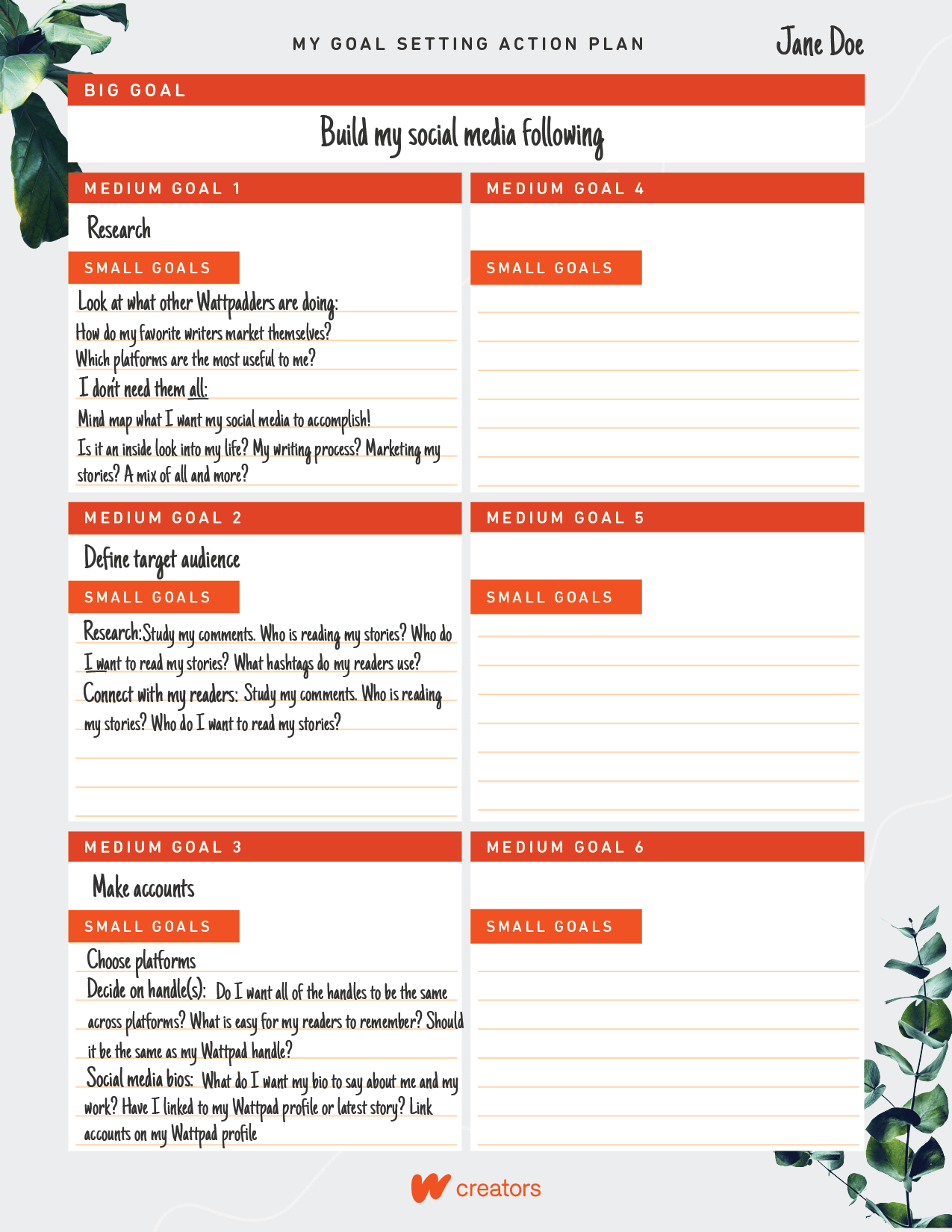So you want to write the next Wattpad hit. Or maybe you want to start writing, period. Whether you're a seasoned professional or just getting the guts to put pen to paper (or fingers to keyboard), setting and sticking to your personal goals can make or break your writing experience.
Goals give us something to look forward to and work towards. They help keep us on task, stay motivated, avoid writer burnout, and offer us opportunities to celebrate as we meet each goal. Remember: no goal is too big or too small.
If you're struggling to get that story finished, or even to get started, here are some helpful tips to get you on your way:
1. Focus on your 'why'
Ask yourself why you want to write your story to begin with. Has it been a dream of yours since you were a little kid? Do you want to fight stigma and help your readers feel less alone? Do you want to be the first person to write a boyxboy werewolf time traveler comedy set in medieval Edinburgh? Whatever your reason is, write it down and keep it close. Maybe even hang it on your wall above your writing space to remind yourself why you do what you do. Your ‘why' will keep you motivated and working towards a bigger goal that will inform every smaller, equally significant goal along the way.
2. Take stock of how you're doing
Spend some time thinking about what you're good at and the areas you can improve on. Do you get your best work done early in the morning or late at night? Do you find it hard to schedule time to get some writing done? Are you great at seeing the big picture, but find it hard to figure out how to get there? These insights will help you plan your goals, lean into your strengths, and identify what you can do to make your writing experience more enjoyable and productive.

3. Don't underestimate smaller goals
The smaller goals lead to bigger goals. Setting small goals, like writing your first paragraph or taking stretch breaks, will help you feel accomplished and productive. It will also ensure you avoid the overwhelm of focusing on bigger goals that take longer to achieve. Don't forget that all those small goals lead to bigger goals in the end.
4. Keep a daily to-do list
Dopamine, the feel-good hormone, releases every time you check something off your to-do list (yes, it's science). Use that to your advantage and make a to-do list every morning, or every morning you plan to write. Take stock of what's realistic to complete that day and break it down into smaller tasks that are easy to check off. Waking up, eating a good breakfast, setting up your writing space, and anything else you can think of. We could all use a little more dopamine, right?
Download this handy daily to-do list to keep track of what you want to accomplish. Fill it in and share it on your Instagram Stories to keep yourself accountable, and inspire your followers to do the same.
5. Make separate lists for small, medium, and big goals
Get a piece of paper or open your laptop and make a list of your big main goals (we recommend starting with one or two). Maybe it's finishing your story or submitting a new story to the Wattys. Now think about how to get there. From that small list, break each goal off into medium-sized goals. For example, complete your first draft, finish editing your story, or create your story outline. You know where we're going next—make those medium goals into a bunch of smaller, attainable goals. Write your first chapter, design your characters, or even choose your genre.
Don't know where to start? We've built a fillable goals list that you can use for your own goal setting. Take a look at our example below and use the template to get started.


6. Set your own deadlines and use timers
You don't need to know the day you want to finish your story, but a general ballpark (like in time for Wattys season!) is a great place to start. From there you can set deadlines for each smaller goal to help keep yourself on track. Setting timed deadlines for daily tasks is a great way to stay motivated, too. The Pomodoro Technique is a popular time management method for staying focused and mentally fresh. Set an alarm for 25 minutes and take a 5 minute break every time it goes off. Knowing you have 25 minutes to do as much work as you can before taking a break will help you stay focused knowing there's a break coming.
7. Reward yourself
Don't forget to give yourself a pat on the back everytime you meet a goal. Take yourself to the movies, get yourself that new journal, have a picnic—anything to show yourself some gratitude that you stuck to your goals and met them.
Learn more about mastering the art of storytelling by accessing our writing essentials for creators.





















